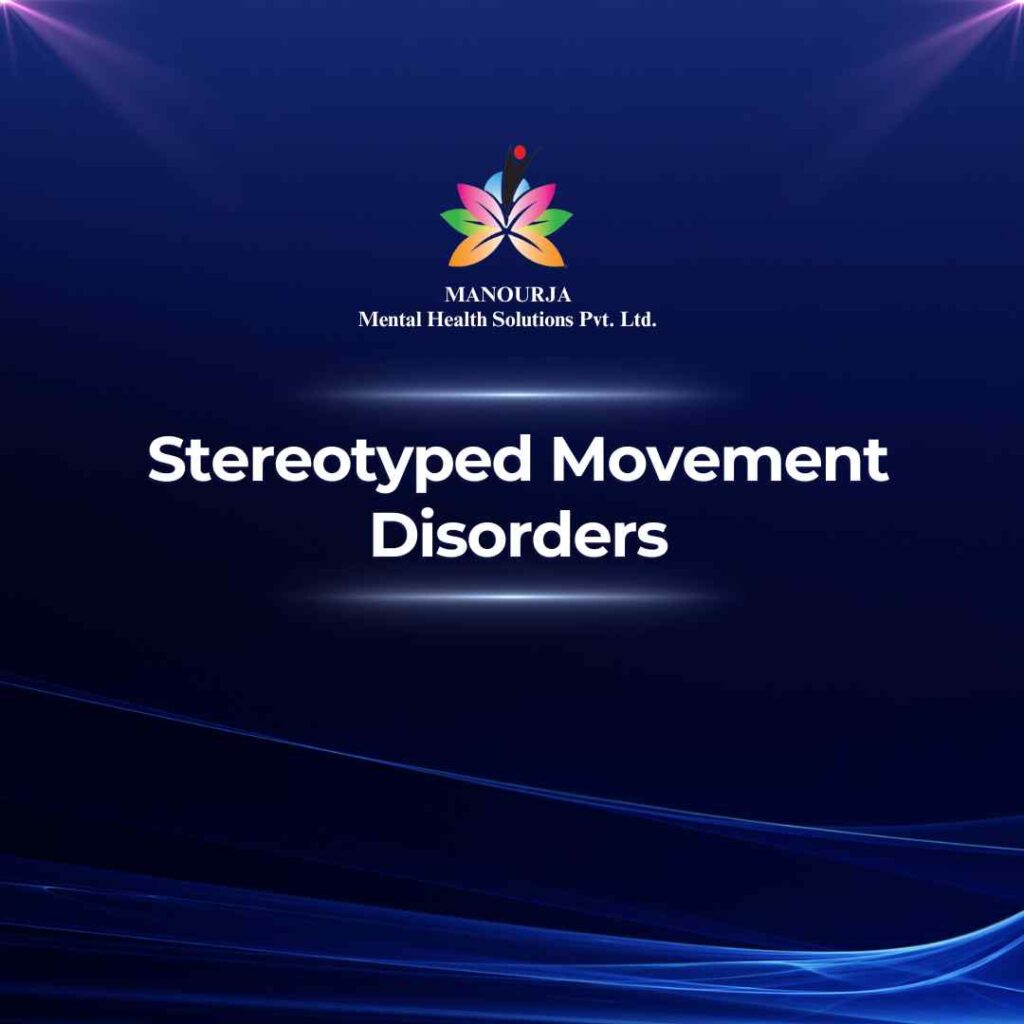Stereotyped Movement Disorders

Stereotyped movement disorders refer to repetitive, non-functional movements that an individual engages in, often without a clear purpose. These movements are typically rhythmic and can be quite noticeable. They’re not performed to achieve an outcome; rather, they seem to be driven by an inherent compulsion.
Common Symptoms of Stereotyped Movement Disorders
- Repetitive Actions: The core characteristic of these disorders is the repetition of movements. These can include hand flapping, rocking back and forth, twirling, or head banging.
- Lack of Functionality: Unlike behaviors aimed at achieving specific goals (like reaching for food), stereotyped movements serve no obvious purpose and are not productive.
- Potential for Self-Harm: In some severe cases, such as with head banging or biting, these movements can lead to self-injury, making management crucial for safety.
- Persistence Over Time: These behaviors often begin in childhood and can continue into adolescence and adulthood, especially if they are not addressed through intervention.
Different Types of Stereotyped Movement Disorders
- Simple Motor Stereotypies: These are straightforward, repetitive movements like shaking or waving hands. They are often seen in otherwise typically developing children and might decrease with distraction or focus.
- Complex Motor Stereotypies: These involve more intricate patterns, such as arranging objects in a specific order repeatedly or performing a series of movements in a ritualistic manner.
- Self-injurious Behaviors: This category includes any repetitive behavior that causes harm, like biting oneself or banging one’s head against a wall.
Treating Stereotyped Movement Disorders
Effective treatment usually requires a comprehensive strategy tailored to the individual’s specific needs:
- Behavioral Techniques: One of the primary approaches is using behavioral interventions to teach the individual alternative, less harmful ways to respond when they feel the urge to perform the stereotyped movement. Techniques like Habit Reversal Training are common, where the focus is on awareness training and developing a competing response.
- Environmental Adjustments: Sometimes, making changes to the person’s environment can help reduce the frequency of these behaviors. This might involve reducing stressors or providing engaging activities that divert attention from the stereotyped movements.
- Protective Measures: For those who engage in harmful behaviors, using protective gear (like helmets or padding) can prevent injuries and give caregivers peace of mind.
- Medication: In cases where behavioral interventions are not sufficient, medication might be prescribed to help manage the urge to engage in these movements, particularly if they are linked to an underlying neurological condition.
- Support for Underlying Conditions: If the stereotyped movements are part of a broader developmental or psychiatric condition, treating that underlying issue is crucial. This might involve therapies like occupational therapy, physical therapy, or speech therapy.
- Education and Support for Families: Helping families understand these disorders is vital. Educating caregivers on how to effectively support and intervene can make a significant difference in managing the condition.
Treatment and support for stereotyped movement disorders are most effective when they are started early and involve a coordinated effort among healthcare providers, therapists, and the family. Each plan should be as unique as the individual it supports, aiming not just to reduce the frequency of movements but also to enhance the person’s overall quality of life.
At MANOURJA, we believe in the transformative power of counseling. Our experienced therapists offer a safe and supportive space where you can explore your thoughts, emotions, and challenges. Through personalized counselling sessions, we’ll work together to develop coping strategies, build resilience, and achieve lasting positive change. Discover the path to a healthier, happier you with MANOURJA counselling services.
MANOURJA Rehabilitation Services
At MANOURJA, we’re dedicated to helping you in rebuild your life, after difficult times. Our rehabilitation services focus on understanding what you need to move forward, whether you’re recovering from addiction, trauma, or any psychological – social challenges. We create personalized plans, that are all about helping you, regain your strength and find hope again. With a caring team by your side, you’ll have the support to make real progress and take steps toward a brighter, healthier future.
